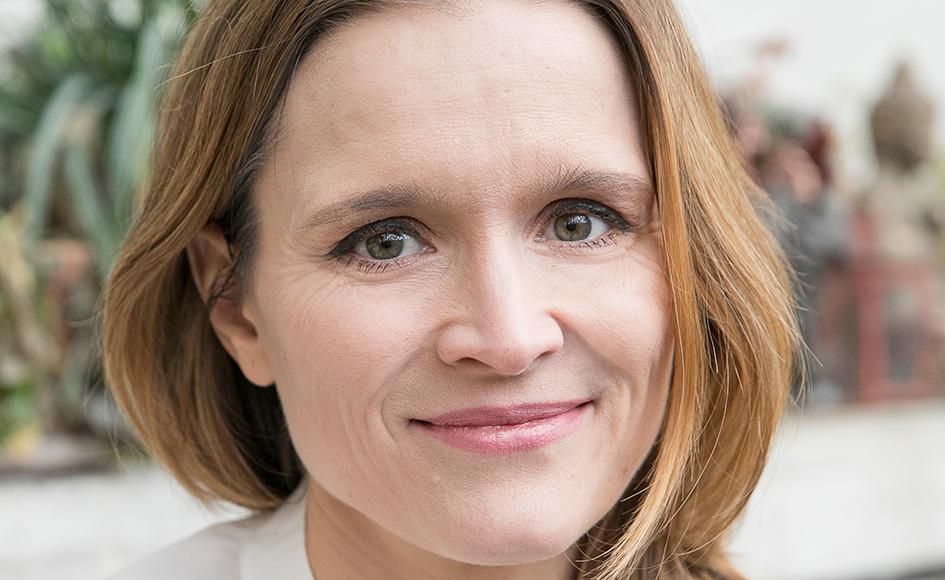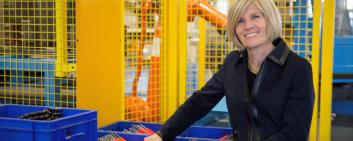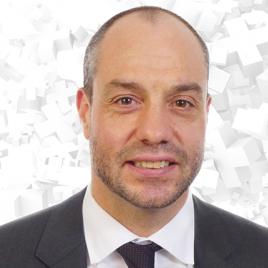Eva Richterich, you head up Ricolab, the new subsidiary of the well-known Swiss SME Ricola AG, and will be speaking about your experiences at the Forum for Swiss Foreign Trade . Ricolab is entirely independent of the parent company and works on radical innovations.
What is Ricolab's objective?
Ricolab is an independent subsidiary within the Ricola Group. We test out new areas of business outside of the day-to-day business which might be of interest to the Ricola Group in the future. We develop experiences in new business models and transmit this knowledge back to the firm. Even if all our innovations were to fail, we would still generate value in the process.
Why does a globally successful Swiss SME like Ricola need an external innovation laboratory?
As a building block of a long-term management strategy, we see Ricolab as a valuable extension to Ricola's own strong innovation department. As an independent subsidiary, Ricolab has the advantage of being able to discover opportunities and risks even outside of the sector, brand and business model – and to do so with a focus on new technologies and with a long-term horizon. In a world that is changing exponentially, this is an important factor for long-term success.
How did the idea for an innovation laboratory come about?
In its current form, it was initiated by myself in partnership with Impact Hub Zurich and under the coaching of our CEO Felix Richterich. Ricolab is now being continually further developed by its own team. Raphael Richterich, CMO of Ricola and the second member of the Ricolab Advisory Board worked with me to develop the interface to the parent company.
What strategy do you follow in your search for new ideas and business models?
Methodical work with a lean start-up approach. What that means essentially is that we are developing a business in a rapid, cost-effective "build-test-learn loop", remaining as close to the market as possible. We work thematically with new technologies whilst maintaining a link with values and the history of Ricola. Currently we are looking at the possibilities of combining age-old knowledge of herbs with current technological developments.
We only develop areas of business that contribute to the achievement of the global UN Sustainable Development Goals. It is only in a halfway healthy world that it is possible to do business successfully, so sustainability and "business" belong together, and we want to set an example by combining them.
What advice would you give other SMEs aiming to develop their own business model in order to remain competitive on a global level?
They should go for it. The digital world is not only creating new technologies, but is changing economic logic. That which is digital or includes large digital elements is scaled differently and creates different sources of income and costs, demands different customer relationships and channels and requires different competences. From Spotify to Facebook, Uber, Airbnb and Amazon – the disruption of the last few years is based not on better products but rather entirely different business models.
Business model innovation is inconvenient, however, because by its very definition it calls into question the status quo. It therefore requires courage, is of strategic importance and must be driven by the company management. Otherwise the result is idling and frustration. It also requires a special team. People who are capable of testing new business models are not classic employees but rather intra- and entrepreneurs. They are intrinsically motivated, ambitious and driven by the desire to create something new. They will tell you themselves what structures and tools they need – all you have to do is listen.
When is it worthwhile for a Swiss SME to invest in a start-up?
Today almost all big companies work with start-ups, but it seems to me that SMEs are still rather reluctant here. That's a shame, because both sides can benefit from one another.
You don't have to be an investor to work with start-ups; the joint development of a prototype, use of sales channels or opening a door to an important partner can likewise assist start-ups. In return, an SME gets insights into new technological developments, ideas and trends and thus saves consultancy costs. A good opportunity to get to know the start-up universe is a partnership with a program such as "Kickstart Accelerator", in which both sides get support for the collaboration.
Ricolab launched with a "beta-phase". Is that an iterative process? Why is this approach important for an SME?
The lean start-up approach that we apply in the innovation projects also applies for the development of Ricolab itself. Instead of philosophizing at length, we test things "in action" and learn from them. This applies to topics, structures and even team members. In the "beta-phase" we have deliberately worked first and foremost on content and networks. There was neither an image nor a website, a definitive team, an implementation strategy or a communication concept. We called it a "beta" phase to protect ourselves from expectations. The advantage of this approach is that we are very fast, and there is no idling, and naturally an error culture is also part of this. Now we are out of the beta-phase, but we would like to stay in this "learning" mode in the future as well.
What areas will Ricolab be focusing on most in 2018?
We don't know yet. The area of herbs and new technologies will keep us busy for a while yet – there's still a lot of potential in that. We will certainly work on knowledge transfer and exchange with the parent company, certainly we will be following the developments relating to disruptive technologies, and certainly we will be working with many others on enterprising solutions for a sustainable world.
Transforming business models
You can find some new topics for discussion in our dossier and in our monthly newsletter (subscribe here - available in German, French and Italian).
At the Forum for Swiss Foreign Trade on May 18, 2017, you will have the opportunity to engage with other Swiss SMEs and to be inspired by pioneers like Ricolab, Elite SA (read the interview) or Burckhardt Compression (read the interview) during the executive talks. Go to program and registration!
About Ricolab
Ricolab is the Ricola Group's new independent future laboratory. Based on Ricola's background, it develops new business areas outside of the brand and the industry, with a focus on new technologies and business models.
About Eva Richterich
Eva Richterich is the co-founder and CEO of Ricolab, and since 2015 has been a member of the Advisory Board at Ricola. Previously she developed and managed projects and institutions in the most varied sectors. She has worked in the area of foundations and later increasingly the area of start-ups.







